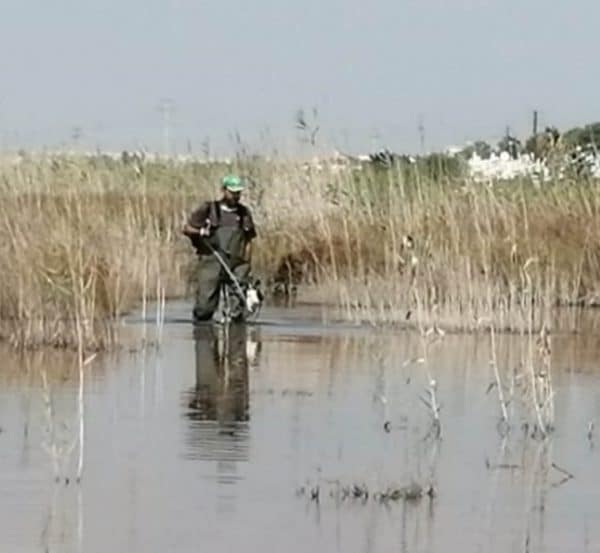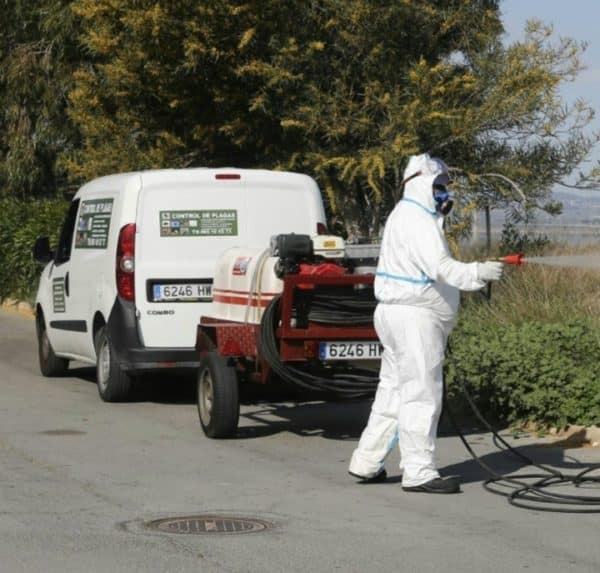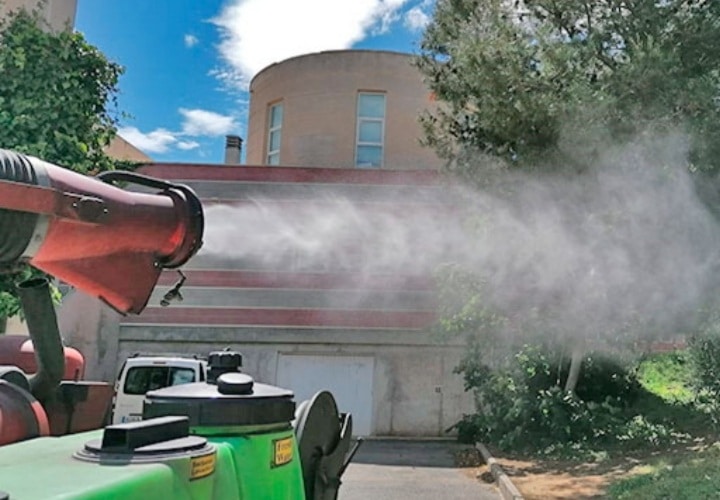- ‘Mosquitoes are resilient. They have many back-up plans to be able to find us and bite us’
Plagues of mosquitoes in Torrevieja and San Luis became so bad that people said they could not venture outside, despite the authorities spray-fumigating multiple times.
But now, with the ongoing pesticide spraying within the Costa Blanca and Costa Calida, a new study finds that some people are ‘mosquito magnets’ – and there’s nothing they can do about it!
Researchers found people who are most attractive to mosquitoes produce a lot of certain chemicals on their skin that are tied to smell. The bad news is that mosquitoes will stay loyal to such smells.
“If you have high levels of this stuff on your skin, you’re going to be the one at the picnic getting all the bites,” said study author Leslie Vosshall, a neurobiologist at Rockefeller University in New York.
Remedies galore are sold in a war against the dreaded mozzies and their bites, but for most if not all of us, they don’t work.
Researchers designed an experiment pitting people’s scents against each other, said study author Maria Elena De Obaldia, with the outcome published in the journal ‘Cell’.
They asked 64 volunteers to wear nylon stockings around their forearms to pick up their skin smells. The stockings were put in separate traps at the end of a long tube, then dozens of mosquitos were released.

“They would swarm to the most attractive subjects,” De Obaldia said. “It became very obvious right away,” added De Obaldia. The biggest mosquito magnet was around 100 times more attractive to the mosquitoes than the last place finisher.
The experiment used the Aedes aegypti mosquito that spreads diseases like yellow fever, Zika and dengue. Vosshall said she’d expect similar results from other kinds but would need more research to confirm.
By testing the same people over multiple years, the study showed the big differences stick around, said Matt DeGennaro, a neurogeneticist at Florida International University.
“Mosquito magnets seem to remain mosquito magnets,” said DeGennaro.

Researchers found a common factor: mosquito magnets had high levels of certain acids on their skin. These greasy molecules are part of the skin’s natural moisturising layer, and people produce them in different amounts, Vosshall said.
The healthy bacteria that live on the skin eat up these acids and produce part of our skin’s odour profile, she said.
You cannot get rid of these acids, without damaging your skin health too, said Vosshall, who is paid by the Howard Hughes Medical Institute and serves as its chief scientific officer. The institute also supports the Associated Press’s Health and Science Department.
Research could help find new methods to repel mosquitoes, said Jeff Riffell, a neurobiologist at the University of Washington: “There may be ways to tinker with skin bacteria and change humans’ tantalising smells.
“Figuring out ways to fight off mosquitoes isn’t easy – mosquitoes have evolved to be lean, mean biting machines,” he said.
Torrevieja has been plagued with mosquitoes in the salt lake vicinity with residents calling to fumigate the entire area in recent years, due to many stating that they cannot go outdoors for fear of being bitten.
Areas that are plagued include Las Torretas I, II and III, Torreta Florida, Lago Jardín, Los Balcones, La Siesta and Aguas Nuevas.
“Mosquitoes are resilient. They have many back-up plans to be able to find us – and bite us,” said Vosshall.
Caption: Spraying Mosquitoes in Torrevieja.





